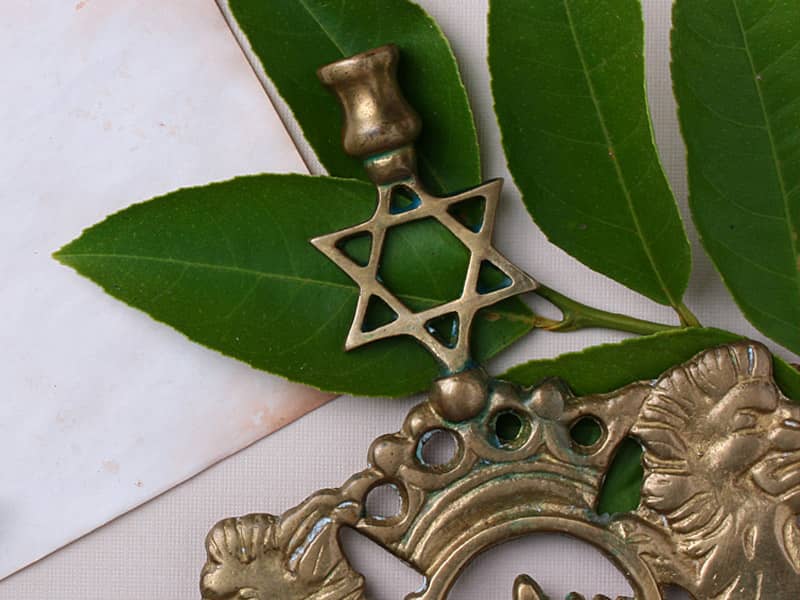"There is now a large, spiritually powerful community of women in the Rabbinical Assembly and in the seminary," said Eilberg, now a pastoral counselor in Palo Alto, Calif. "It's wonderful that no one needs to be alone anymore."
Reed won't be alone because 11 other women will be ordained with her. When ordination at the Ziegler School of Rabbinic Studies in Los Angeles is completed later this month, 136 Conservative women rabbis will have been ordained in the United States. These events take place 18 years after the Jewish Theological Seminary, the largest Conservative seminary in the world, voted to admit women to the rabbinical school. In Jewish tradition, 18 is a significant number associated with life, and this community of Conservative women rabbis seems to be full of life -- and the struggles that come with it.
As Reed begins her first year as a rabbi, she's aware challenges lie ahead.
"In many ways, my classmates are still pioneers," she said. "There are many places where women have not been."
In June, two groups will meet to discuss issues relating to women rabbis. The meetings illustrate the effect women have had on the field and within the Rabbinical Assembly, the international professional body of approximately 1,500 Conservative rabbis. The Assembly's Task Force on Women Colleagues will meet for the first time to consider professional issues, while the movement's Committee on Law and Standards will debate a complex point of Jewish law. The need to even consider questions relating to women rabbis suggests how things have changed.
Decades of debate preceded the ordination of Conservative women. (The Reform movement ordained its first woman in 1972, while the Orthodox movement still does not ordain women.)
"The first generation of women rabbis grew up being told this was impossible," said Rabbi Stephanie Dickstein, an assistant dean at the Jewish Theological Seminary, who was ordained in 1989.
Conservative women's ordination brought new possibilities within the movement.
"The image of the rabbi has changed, it's opened up people's eyes," Rabbi Jerome Epstein, executive vice president of the Conservative movement, said of women's ordination. "They have clearly made an impact, in part by creating role models for young Jewish women, and even young Jewish men."
"When we first entered those conversations, many of the men said, `I've been a rabbi for many years, and no one's ever asked me that question,"' Eilberg said. "I was asked that question the first year I was a rabbi."
Conservative women rabbis cope with different issues than their male counterparts, both religiously and professionally. At its June meeting, the law committee will discuss women rabbis serving as witnesses on documents relating to marriages and conversions. The task force will tackle questions of equal opportunity.
"There are still some congregations who struggle, either religiously or emotionally, to accept a woman rabbi," said Epstein.
Women rabbis lead synagogues and work as chaplains and in Jewish organizations, but proportionately there are still fewer women in the pulpit than men. These women sometimes encounter a "stained glass ceiling."
"Most of the women (in pulpits) are in entry level positions and have a very hard time finding positions that aren't entry level, even if they have seniority," said Rabbi Susan Grossman, who was ordained in 1989 and leads the Beth Shalom synagogue in Columbia, Md.
Gathering data on these issues will be a priority for the task force, said Rabbi Debra Cantor, who will chair the group of eight to 10 members.
"We need hard numbers about why women are making the choices they're making, not just anecdotal evidence," she said. "We want to make sure there are as many possibilities for women as there are for men."
The anecdotal evidence suggests Conservative women rabbis face other problems, including sexual harassment, the balance of family and professional life, and frustrating attitudes.
Cantor, who was ordained in 1988 and was the first woman in a Conservative pulpit in the Northeast, now works for the Bureau of Jewish Education for Greater Boston. Early in her career, some congregation members questioned her parenting skills when they saw her husband taking care of their children during services.
"They'd come to the synagogue on Jewish holidays or Saturday mornings, and I was officiating. I was in the pulpit, preaching. Naturally, I wasn't playing with my children then, it would've been totally inappropriate," she said.
Conservative women rabbis acknowledge that such attitudes persist, but most remain optimistic. Cantor said many find joy in their work that can best be described with a Hebrew term.
"`Sipuk nefesh' means a deep-seated sense of satisfaction, feeling rewarded by one's work," she said. "It means literally a contentment of soul."

